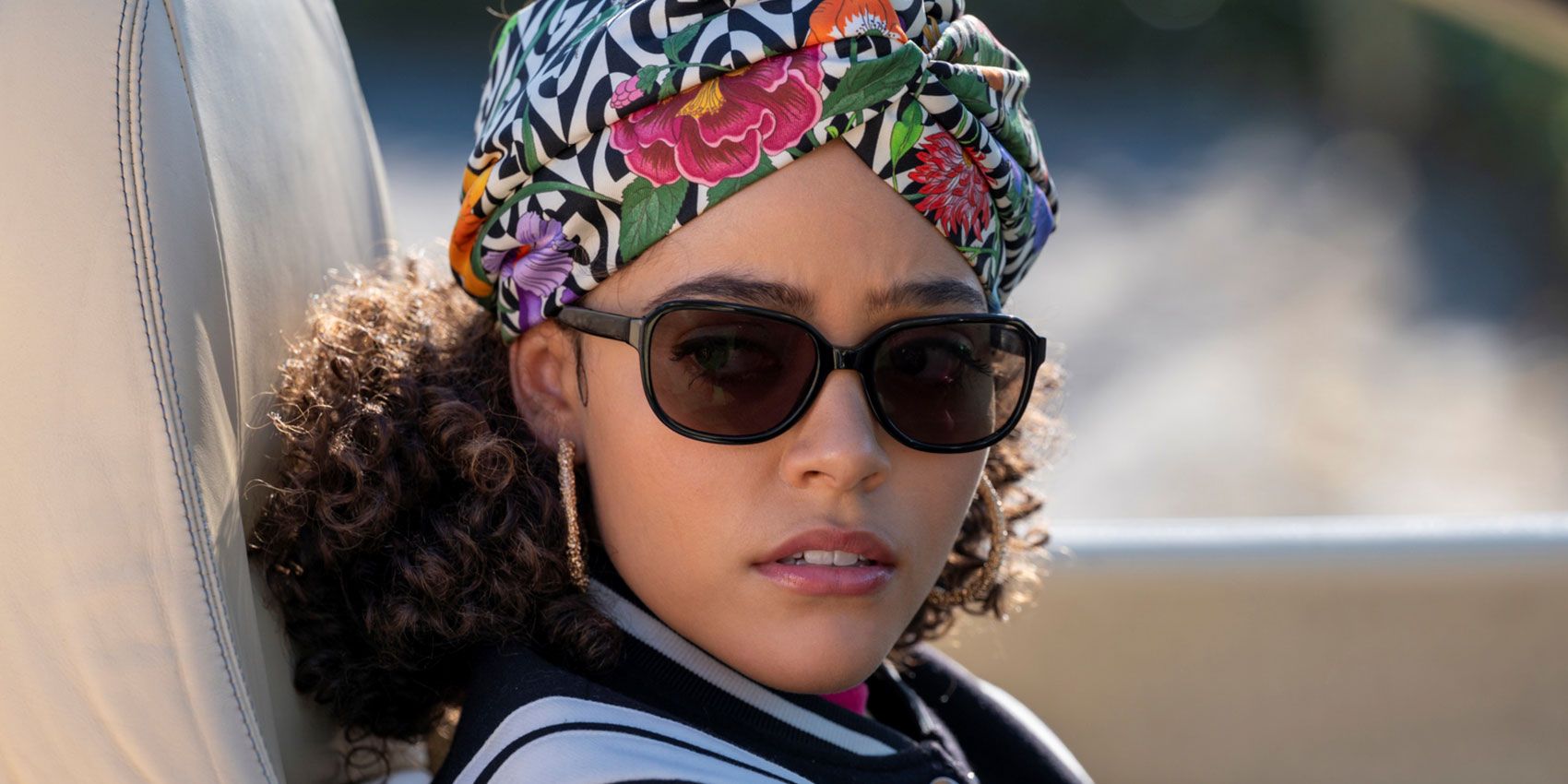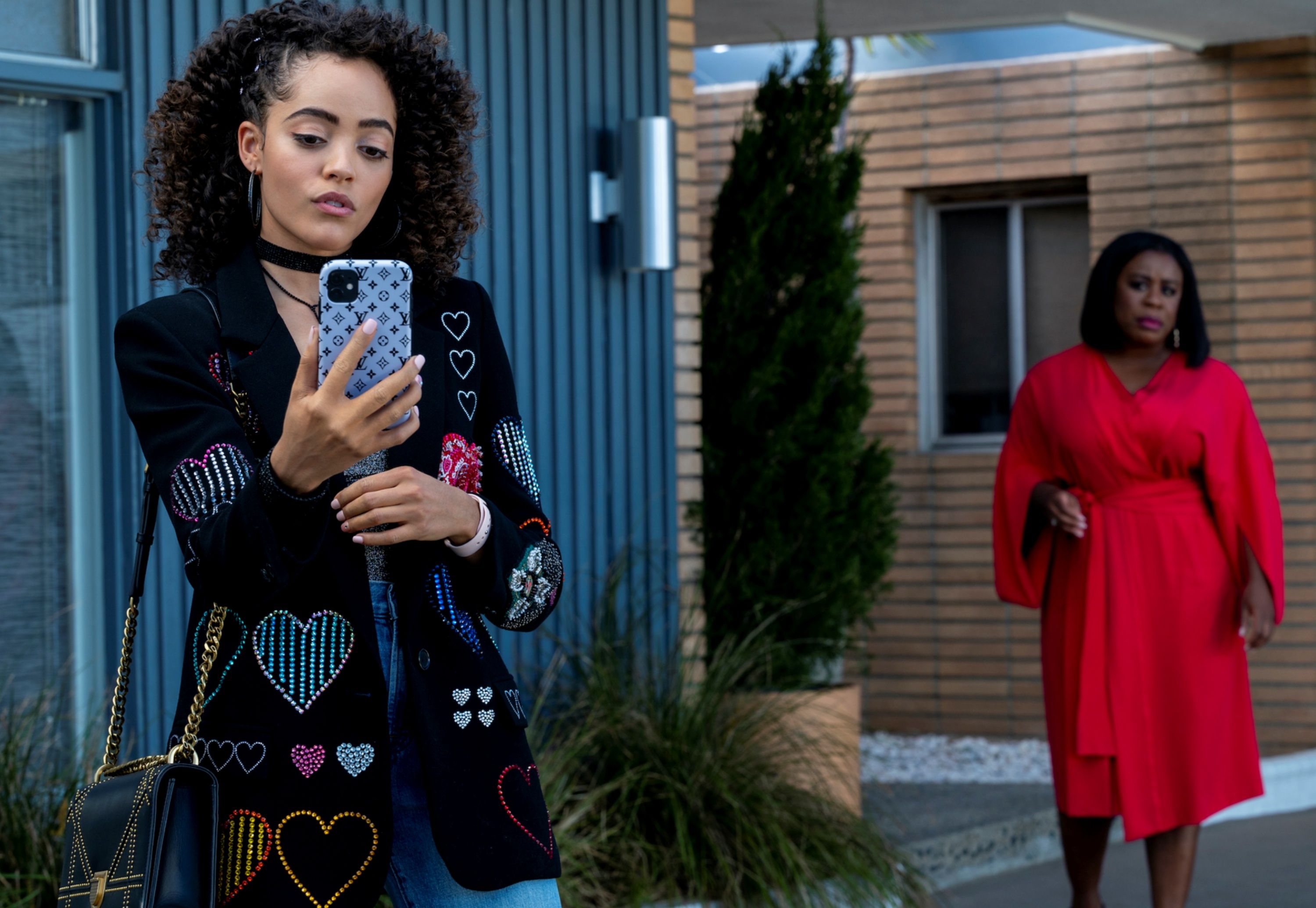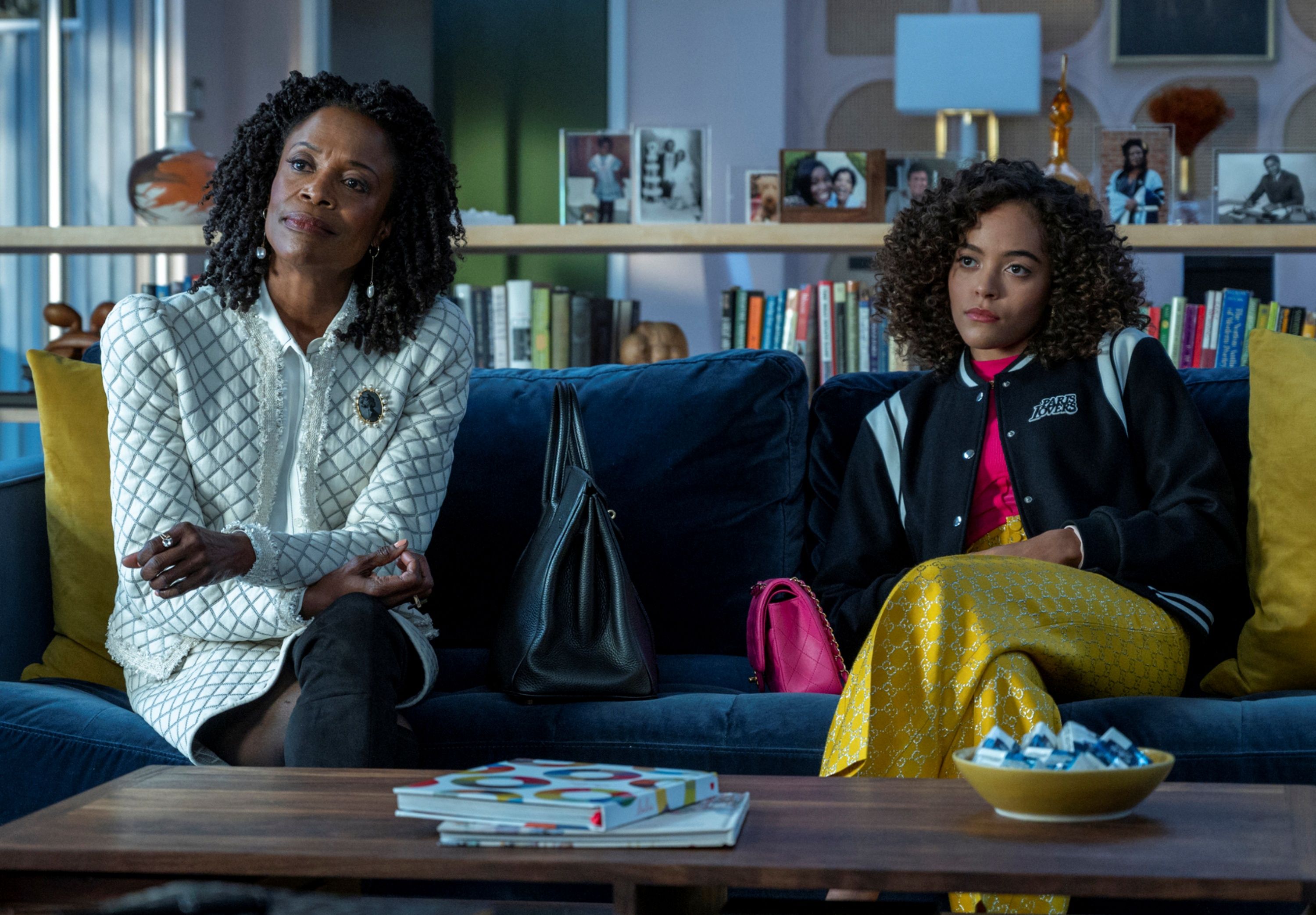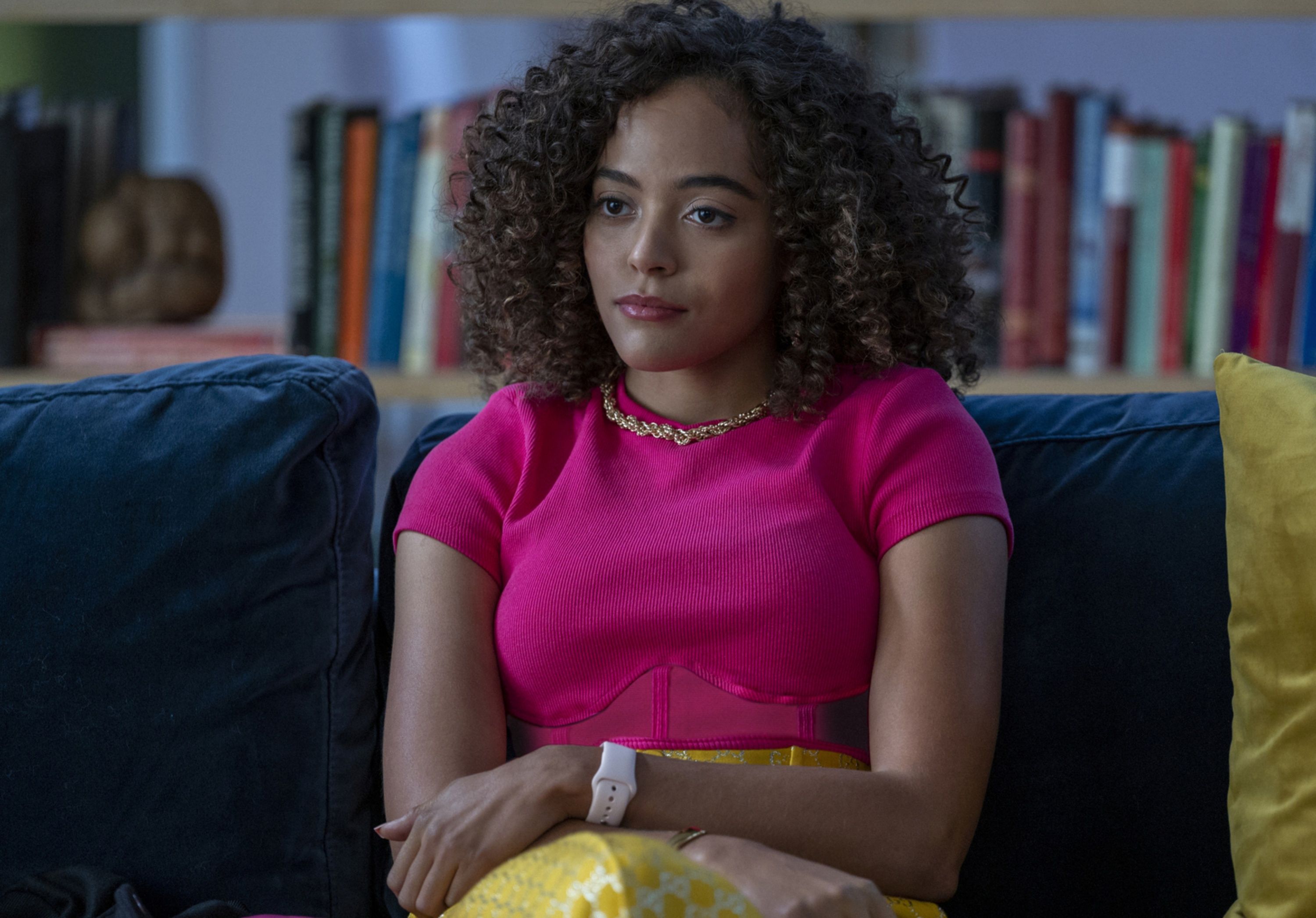The latest season of the HBO series In Treatment follows Dr. Brooke Taylor (Uzo Aduba), a therapist in Los Angeles who currently has a diverse trio of patients — home health aide Eladio (Anthony Ramos), millionaire turned white-collar criminal Colin (John Benjamin Hickey), and distrustful teenager Laila (Quintessa Swindell) — for whom she’s trying to help navigate their concerns. Current social and cultural shifts permeate all of the therapy sessions while Brooke also tries to deal with complications and demons in her own life that are proving to be quite challenging.
During a virtual junket to promote the new season, Collider got the opportunity to chat 1-on-1 with Swindell about why they were initially hesitant about this character, how they figured out who Laila is, the dynamic in the therapy sessions, and cramming so much content into two days of shooting per episode. They also talked about wanting to work on projects that have something constructive to say, and venturing into the world of superheroes for Black Adam.
Collider: How was it to go on this journey with your character? Was it anything like you expected?
QUINTESSA SWINDELL: When I first got the script, I had only gotten the sides, I believe. I don’t know if I had gotten the full thing just yet. It was basically when Laila’s making a mockery out of the initial therapy session and lying to do what she thinks the therapist, Dr. Taylor, wants her to do, so she just makes up all of these things. For me, when I was looking at that initially, I was like, “Oh, okay, so she is what she’s saying. I don’t know if I have the capacity to play that or where that could possibly go,” coming from the space of being a non-binary person and not wanting to be triggered in any particular way. But then, when I met with them again and got this full script, they were like, “Oh, no, this is basically a lie that she’s saying and it actually goes to a much deeper and a much more intrinsic and very niche space.”
And so, in the beginning, there was a little bit of judgment on my part of the character, and that’s the one thing you learned not to do in theater school. It was a lot of unlearning and destabilizing where I personally have gotten to, working through trauma, and putting my mind back in the space of a young teenager who’s self-actualizing her place in the world, and what that looked like and what that felt like, and doing that in the most transparent way possible.
By the time you were able to put all of those pieces together and figure out exactly where her story was going, did you feel very differently about her by the end of it?
SWINDELL: Oh, absolutely, yeah. When you’re only given so much of a character beforehand, you can only know so much, but the writers have done such a phenomenal job at really, really packing so much into these characters and making them truly multi-dimensional. I was constantly learning more and new things about Laila, as time went on, which made me feel way more connected to her and her experience.
It’s definitely an interesting situation because it’s not comfortable for anybody to sit down and bare their soul to a therapist that they don’t know. You don’t particularly want to do that with any stranger. It’s fascinating to watch them each decide how much to share and how much they’re going to manipulate the situation.
SWINDELL: Absolutely, yeah. It’s interesting because I feel like Laila doesn’t trust adults, particularly because all of the adults in her life have either done her wrong in some way or another, in her head, or have contributed to her own trauma, or they’ve just talked down to her or treated her less than what she actually deserves as like a human being. I think Dr. Taylor is the first time where she is being talked to like an equal. It’s really interesting.
And Laila is still very young and doesn’t know who she is entirely either, so she’s still exploring herself.
SWINDELL: Yeah, absolutely. I agree. I feel like, given the circumstance of the world that I feel most teenagers are going through today, you have a copious amount of self-actualization, especially as a queer person, a person of color, and as a young Black woman. Laila is experiencing that realization that people in her family could be murdered or she could be murdered, but that she could also get away with this because of the lightness of her skin. I think she’s actually incredibly self-aware, but it’s functioning within her own self-actualization while also trying to figure out how to navigate life, navigate her grandmother, and navigate the world that she’s in, and trying to do better.
Do you have any tricks, as an actor, for preparing to do scenes like this, for taking on this much dialogue, and for going through all of this at once?
SWINDELL: My preparation was mostly just talking to people who are a little bit younger than me, or family friends who were a little bit younger and in school, or how younger people across the board have been dealing with school online, the isolation from their friends, the isolation from people that they love, and how they navigated that space and the frustrations that they would have, and then incorporating that into a lot of Laila’s characteristics or her circumstances with her family, and then blending those together and trying to be as honest as possible.
Was it ever completely overwhelming to do these episodes in two days?
SWINDELL: Yeah, it was a lot, but they’re mostly just one scene. It was incredibly tough, but at the same time, it just seemed like such an opportunity to tighten up memorization skills and the focus that’s needed to carry out the scene, and being able to be emotionally present throughout the duration of one day and then the next day, and being there to be able to do it. It was a lot, but at the same time, it was well worth it. I definitely learned a lot, especially having someone like Uzo [Aduba]. I was very taken care of.
Did you spend a lot of time thinking about what Laila was doing when she wasn’t in therapy and what an average day is like for her?
SWINDELL: That’s actually an interesting question. Yes and no. I could imagine the things that she was doing outside of therapy, of course. When you enter the space of therapy, you think about, what was the moment before? How did the day go? How does the morning affect the session in the afternoon? So definitely, I would take those things into consideration, as far as what emotion to enter with. When I enter my own personal therapy sessions, everything from that day and everything that I do goes out the window. It’s blank, and it’s just me and this person in front of me. That’s how I was looking at In Treatment. It was like, nothing else matters except for this moment of time, this hour, and the moments leading up to it. But I wasn’t really thinking about what she does, other than the things that are mentioned in the script.
From Trinkets to Euphoria to Voyagers to now In Treatment, you’ve been amassing quite an eclectic collection of projects, genres, and characters. Did you personally have any sort of plan or wishlist in all of this, or do you feel like you’re lucky that you’ve had a diversity in projects and roles?
SWINDELL: Yeah, I think it’s a little bit of luck, but I’m just attracted to projects that are very unique and that also have something constructive that they’re saying at their core. Being a part of all of those projects has been the most beautiful experience. It’s crazy. It definitely wasn’t planned, but I love how different each and every one of them are. It’s cool, being able to try to figure out a place in the industry.
And now you’re venturing into the world of superheroes with Black Adam. Do you feel like you’re able to find a way to carve out a space for yourself?
SWINDELL: Yeah because there’s a level of realism in the character and that’s just really beautiful. Seeing what they’re doing with the script and seeing what they’re doing with DC as a whole is just really beautiful. It’s inspiring, the direction that they’re going in, and being able to be a part of that process lines up with every other project. It definitely means something. The values that it has at its core are values that line up with what I believe in and what I look up to.
In Treatment airs on Sunday and Monday nights on HBO, and is available to stream at HBO Max.




